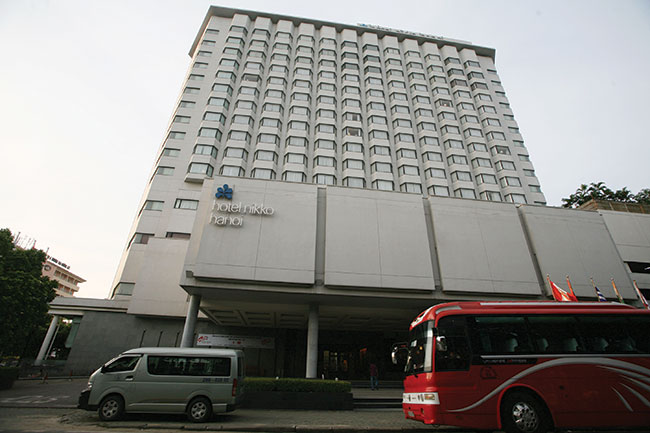Hotels under pressure as market dips

With falling tourist numbers, hotels in the capital have had to weather the storm
In the first four months of this year, around 2.7 million foreigners entered Vietnam, down by 12.2 per cent compared to the same period last year. The number of international visitors to Hanoi during the first quarter of this year was 537,000, down 14 per cent year-on-year.
Céline Guyomarc’h, general manager of the five-star Melia hotel in Hanoi, told VIR that the declining number of international visitors to the capital is part of a wider downward trend among foreign tourists coming to luxury hotels in general across Vietnam. However, Guyomarc’h noted that by anticipating this drift, and by applying flexible sales strategies, the Melia Hanoi has maintained the same volume of international tourists as last year.
She added that the main reason for this significant decrease was the global economic downturn. In the wake of the worldwide recession, people were trimming their travel budgets, and opting instead for domestic trips.
“In order to remain competitive and tackle this issue, upscale hotels like ours have had to anticipate market trends, and adapt to them by continuously improving service quality, constantly training our team, and offering flexible sales policies”, shared Céline Guyomarc’h.
With this in mind, the Melia Hanoi has implemented a proactive and dynamic business strategy, working with key accounts, and co-operating with travel agencies to create appealing packages for new arrivals to Hanoi.
The Melia Hanoi has also re-launched its loyalty program, MeliaRewards (previously known as the Mas programme), offering attractive benefits and fostering greater customer loyalty. “In 2015, as a result of our various efforts, flexible sales strategies, and attractive promotions, we expect to achieve positive results,” she said.
Bui Thanh Tung, director of sales at Hotel Nikko Hanoi, also a five-star hotel, said that despite the aggressive investment in tourism promotion undertaken by Vietnam government, there was still a diminishing number of international tourists coming to Vietnam. He told VIR that while this had dealt a heavy blow to the hotel industry in general, it was especially difficult for five-star hotels.
Tung added that since July 2007, when the global financial crisis first sparked off, a significant number of private companies were having difficulties receiving loans for due investments and were subject to massive lay-offs. Compounded by high oil prices and rising inflation rates, this meant that employees were travelling under reduced travel budgets, or were postponing – or even cancelling – their travel plans.
In the face of such problems, Tung said there were a number of steps that could be taken to ameliorate the situation and help the industry get back on its feet. For example, some regions had recorded positive results by targeting source markets directly with promotional campaigns and simplifying the issuance procedures for visas for prospective hotel guests.
He added that providing more direct flights was a critical factor in removing growth barriers to new source markets. Furthermore, the entire tourism infrastructure should be carefully reviewed and renewed, taking into account both international as well as domestic demand. “Our priority is to invest in and develop sophisticated online marketing and IT tools to communicate more effectively within the international market.”
What the stars mean:
★ Poor ★ ★ Promising ★★★ Good ★★★★ Very good ★★★★★ Exceptional
Latest News
More News
- An Phat 5 Industrial Park targets ESG-driven investors in Hai Phong (January 26, 2026 | 08:30)
- Decree opens incentives for green urban development (January 24, 2026 | 11:18)
- Public investment is reshaping real estate’s role in Vietnam (January 21, 2026 | 10:04)
- Ho Chi Minh City seeks investor to revive Binh Quoi–Thanh Da project (January 19, 2026 | 11:58)
- Sun Group launches construction of Rach Chiec sports complex (January 16, 2026 | 16:17)
- CEO Group breaks ground on first industrial park in Haiphong Free Trade Zone (January 15, 2026 | 15:47)
- BRIGHTPARK Entertainment Complex opens in Ninh Binh (January 12, 2026 | 14:27)
- Ho Chi Minh City's industrial parks top $5.3 billion investment in 2025 (January 06, 2026 | 08:38)
- Why Vietnam must build a global strategy for its construction industry (December 31, 2025 | 18:57)
- Housing operations must be effective (December 29, 2025 | 10:00)
















 Mobile Version
Mobile Version